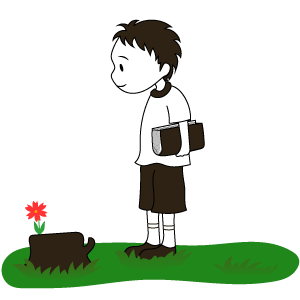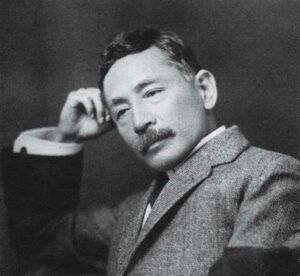Recently, I have seen many books and business books using phrases such as “don’t work hard,” “don’t force yourself,” and “it’s okay to run away.
I am sure that people are aware that everyone is working hard, which is probably why they are attracted to such books. However, even if you realize that you don’t have to work hard, it is quite difficult to suddenly stop working hard.
Because that is how they have been living all their lives. Even if you read a book like this and suddenly vow, “I’m not going to work hard anymore,” you will probably work just as hard again as you did yesterday once you get on the commuter train at dawn.
It is because you do this that you cannot easily change. It is because it is in our work and study that we tend to push ourselves to do our best.
If you think, “I’m not going to work hard anymore, I’m going home on time from today,” you will “work hard” to finish your work by then.
Don’t push yourself too hard. Don’t work too hard. If you are able to do that, you don’t even bother to tell yourself that.
People like me, who hardly work hard at anything except what I like to do (novels), are probably being told to “work harder” at every turn.
In other words, “don’t try harder” and “don’t push yourself” are just magic words to make people who are tired of their jobs and relationships feel that way.
I read somewhere that the word “ganbaru” was almost never used in daily life in the old days, such as the Nara and Heian periods.
In fact, we do not find the word “ganbare” or words meaning “do your best” in waka or tanka poems. I am not sure when it probably started, but it was used in wars or when lives were at stake, and it came to be widely used in everyday life. Generally speaking, it is said to have been used since the Tokyo Olympics (before).
Originally, in the modern age, there are not so many opportunities to risk one’s life. It is only when one is drowned in water, engulfed in the sun by fire, or attacked by a gang of thugs.
Therefore, we do not need to use the word “hang in there” in the first place because there is no need to put our lives on the line when studying for exams or working.
The reason it has come to be used in such a daily routine is probably because it is based on the idea that “doing one’s best is precious.
Wealth and strength, modernization, catch up and overtake. Once the war is over, it is time for economic recovery, economic development, sports, and study. Those who work hard are noble and cool, and even those around them want to be encouraged and inspired, so they cheer them on to do even better.
The person who is doing his or her best, with the support of those around him or her, is pushing himself or herself beyond his or her limits. They want more support. In the end, it is a world of winning and losing.
And those who lose (not only in sports, but also in work quotas and stress) also receive a cheering “well done”.
However, while there are many people who like such battles and competition, there are also a certain number of people who do not like to fight. Like me, these people hate being told by others to “go for it” or to “do well.
They don’t want to beat anyone, they don’t want to win, and they don’t want to work hard. I don’t want to do my best. They don’t want to be told to do their best. They just want to be left alone.
I think it is correct to say that “don’t work hard” is a negative word for “hang in there,” but in reality, the word “hang in there” itself is unnecessary.
Even so, this world is a completely competitive society. There is freedom to not have to work hard, but you still have to work a little harder to make a living. If you decide that you don’t want to work hard at anything other than what you love, that’s fine, but you still have to think about what happens if you can’t make a living at it.
To put it in a cool way, you will die in the field. Being a hermit for the rest of your life would be one of them. But if you choose that, you have to throw away a lot of things. You have to give up a life like everyone else, luxuries like everyone else, and a world like everyone else. In other words, what is generally considered happy in the world.
If you want any of those things, you have to work hard somewhere. How hard can I work? How much can I give up? You have to decide that at the risk of your life.
If you simply use the magic word “don’t work hard,” it will just be a distraction to get you through the hard days. Nothing will change.
Don’t put too much faith in those who easily use such words to comfort you. They may seem to be words of salvation, but in the end they are just a money-making scheme.
Again, in your own life, do you really need the word “hang in there,” and if so, to what extent, and if so, where do you use it? In order not to be crushed by “Ganbaru,” I believe that in the end it is up to you to decide for yourself.
See you soon.








-192x300.jpg)



